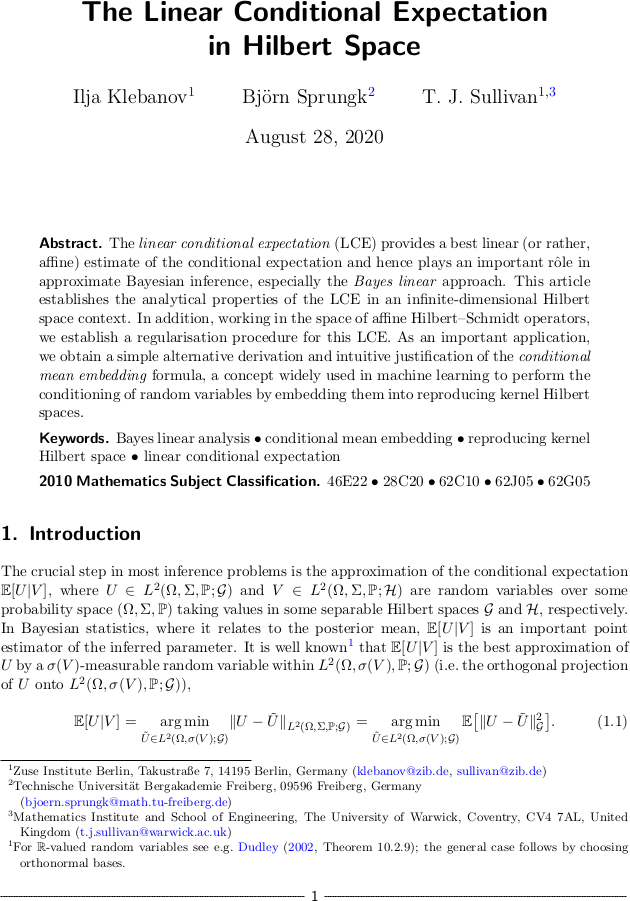
Linear conditional expectation in Hilbert space
Ilja Klebanov, Björn Sprungk, and I have just uploaded a preprint of our recent work “The linear conditional expectation in Hilbert space” to the arXiv. In this paper, we study the best approximation \(\mathbb{E}^{\mathrm{A}}[U|V]\) of the conditional expectation \(\mathbb{E}[U|V]\) of an \(\mathcal{G}\)-valued random variable \(U\) conditional upon a \(\mathcal{H}\)-valued random variable \(V\), where “best” means \(L^{2}\)-optimality within the class \(\mathrm{A}(\mathcal{H}; \mathcal{G})\) of affine functions of the conditioning variable \(V\). This approximation is a powerful one and lies at the heart of the Bayes linear approach to statistical inference, but its analytical properties, especially for \(U\) and \(V\) taking values in infinite-dimensional spaces \(\mathcal{G}\) and \(\mathcal{H}\), are only partially understood — which this article aims to rectify.
Abstract. The linear conditional expectation (LCE) provides a best linear (or rather, affine) estimate of the conditional expectation and hence plays an important rôle in approximate Bayesian inference, especially the Bayes linear approach. This article establishes the analytical properties of the LCE in an infinite-dimensional Hilbert space context. In addition, working in the space of affine Hilbert–Schmidt operators, we establish a regularisation procedure for this LCE. As an important application, we obtain a simple alternative derivation and intuitive justification of the conditional mean embedding formula, a concept widely used in machine learning to perform the conditioning of random variables by embedding them into reproducing kernel Hilbert spaces.
Published on Friday 28 August 2020 at 09:00 UTC #preprint #tru2 #bayesian #rkhs #mean-embedding #klebanov #sprungk